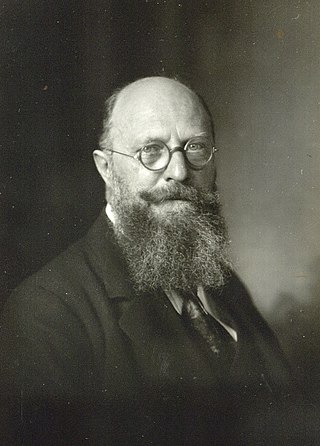Related Research Articles
A trade union or labor union, often simply referred to as a union, is an organization of workers whose purpose is to maintain or improve the conditions of their employment, such as attaining better wages and benefits, improving working conditions, improving safety standards, establishing complaint procedures, developing rules governing status of employees and protecting and increasing the bargaining power of workers.

Thorvald August Marinus Stauning was the first social democratic Prime Minister of Denmark. He served as Prime Minister from 1924 to 1926 and again from 1929 until his death in 1942.

The Norwegian Confederation of Trade Unions is a national trade union center, decidedly the largest and probably the most influential umbrella organization of labour unions in Norway. The 21 national unions affiliated to the LO have almost 1,000,000 members of a Norwegian population of 5 million. The majority of affiliated unions organizes traditional blue collar workers, but the largest affiliate is the Norwegian Union of Municipal and General Employees which makes up more than a third of all members. LO is affiliated to the ITUC and the ETUC.
A national trade union center is a federation or confederation of trade unions in a country. Nearly every country in the world has a national trade union center, and many have more than one. In some regions, such as the Nordic countries, different centers exist on a sectoral basis, for example, for blue collar workers and professionals.

Anker Henrik Jørgensen was a Danish politician who served at various times as Prime Minister and Foreign Minister of Denmark. Between 1972 and 1982 he led five cabinets as prime minister. Jørgensen was president of the Nordic Council in 1986 and 1991.
LO, The Danish Confederation of Trade Unions was founded in 1898 and was an umbrella organisation for 18 Danish trade unions. At the end of 2018, it merged into the new Danish Trade Union Confederation.

The Swedish Trade Union Confederation, commonly referred to as LO, is a national trade union centre, an umbrella organisation for fourteen Swedish trade unions that organise mainly "blue-collar" workers. The Confederation, which gathers in total about 1.5 million employees out of Sweden's 10 million people population, was founded in 1898 by blue-collar unions on the initiative of the 1897 Scandinavian Labour Congress and the Swedish Social Democratic Party, which almost exclusively was made up by trade unions. In 2019 union density of Swedish blue-collar workers was 60%, a decline by seventeen percentage points since 2006. A strongly contributing factor was the considerably raised fees to union unemployment funds in January 2007 made by the new centre-right government.

The Cooperation Committee of the Nordic Worker's Movement, better known by its abbreviation SAMAK, is an alliance of social democratic parties and labour councils in the Nordic countries. SAMAK consists of all social democratic parties and trade union organisations in the Nordic countries, including in Greenland, the Faroe Islands and Åland. The current President of the Committee as of 2021 is Jonas Gahr Støre, the leader of the Norwegian Labour Party and Prime Minister of Norway. Jan-Erik Støstad is the General Secretary, and Kjersti Stenseng is Chair of the Board.

The United Federation of Workers in Denmark is a Danish labor union.
The Danish General Workers' Union was a general union representing mostly unskilled and semi-skilled workers, in Denmark.

The Danish Union of Metalworkers is a trade union in Denmark. It principally represents workers in the metal industries, but also covers telecommunications, transportation and some other sectors.
The Food Union NNF is a trade union representing food and tobacco workers in Denmark.

The Danish Timber, Industry, and Construction Workers' Union (TIB) was a trade union representing construction, wood and furniture workers in Denmark.
FTF – Confederation of Professionals in Denmark was founded in 1952 and was one of the three national trade union centers, with about 80 Danish trade unions affiliated.
The Ghana Federation of Labour (GFL) is a national trade union centre in Ghana. The origins of the GFL can be traced to the departure of a group of workers from the TUC-affiliated Industrial and Commercial Workers' Union who then founded the Textile, Garment and Leather Employees Union (TGLEU) in 1993. The TGLEU subsequently attempted to affiliate to the TUC, but was refused. In 1996, changes in labour law in Ghana allowed trade union pluralism and in 1998 the GFL was founded.
Trade unions in Ghana first emerged in the 1920s and have played an important role in the country's economy and politics ever since.
Trade unions in Uganda have existed since the 1930s. For much of Uganda's history trade union activities have been greatly shaped by national politics and by events external to the country's labour movement. The experiences of trade unions in Uganda fall into four periods: during the British colonial period, from independence to the rise to power of Idi Amin (1962-1971), the Idi Amin dictatorship (1971-1979) and through to the present.
The Danish Women Workers' Union was a general union representing women working in what were perceived to be lower-skilled jobs, in Denmark.
Trade unions in Norway first emerged with the efforts of Marcus Thrane and the formation of the Drammen Labour Union in 1848 which organised agricultural workers and crofters. However, with Thrane's imprisonment and the suppression of the union in 1855, it was not until 1872 before a union was founded again, by print workers. In 1899 the first national federation, the LO, was founded. During this period interactions with trade unions in Denmark and Sweden played a great influence over the development of trade unions in Norway.
References
- ↑ Ebbinghaus, Bernhard; Visser, Jelle (2000). Trade Unions in Western Europe Since 1945. Basingstoke: Palgrave Macmillan. p. 176. ISBN 0333771125.
- ↑ "Fødevareforbundet NNF". Akassefinder.dk. Retrieved 7 February 2020.